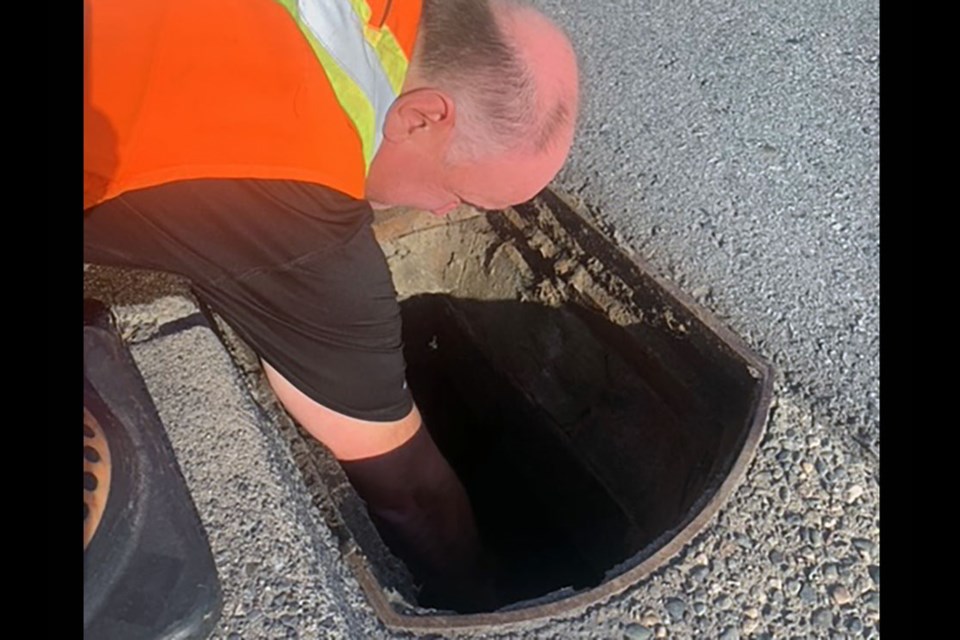"Because it matters."
It's common for our fine-feathered friends in the community to roam urban areas in hopes of finding the nearest waterway.
A duck family that was ultimately reunited at Como Lake in Coquitlam on Thursday (May 18) needed to be rescued twice — and it took the awareness of local residents and a city employee to complete the mission.
Caragh Robinsmith told the Tri-City 撸奶社区 she and her daughters noticed a mama duck and 10 ducklings stuck against a fence.
The Como Lake Avenue resident said two crows were lurking nearby with an apparent intent to eat the babies.
"I just ran across the road, grabbed a neighbour's recycle bin and loaded the babies into the bin," she explained.
However, Robinsmith said one of the ducklings, later named "Minnie," fell into a grate while loading them into the bin.
She walked with the mother to and released the ducklings into the lake, but then went back to try to get Minnie.
"I knew she would follow me....I just kept calling her and waiting for her to follow," Robinsmith remarked.
"Traffic [near Como Lake Avenue and Gatensbury Street] was incredibly gracious."
Robinsmith called BC SPCA for help, who then got in touch with the City of Coquitlam.
City worker "Cam" arrived on scene and everyone involved spent more than an hour retrieving Minnie, and Robinsmith and her daughters reunited it with the family.
"I would really like to thank the City of Coquitlam for permitting staff like 'Cam' to come out and save our wildlife, because it matters. I couldn't go home hearing it cry in the sewer and die alone."
Rescued & reunited. 馃鉂わ笍
What can you do?
Birds across the Tri-Cities are known to start nesting in the late days of spring, including ducks.
The Wildlife Rescue Association of BC association is reminding Tri-Cities residents to be on the look out for nests that are being disturbed and to watch out for fledglings that may have been abandoned.
If you have disturbed a nest, the association recommends calling the rescue hotline at 604-526-7275 for advice on what to do next. It may be possible to put the nest back, but then it has to be monitored to ensure parents will come back and feed the fledglings.
Baby birds may be under stress and the nest may have to be brought in so the birds can be rehydrated or helped with their injuries.
It's not unusual for baby birds to land on the ground when learning to fly; they can be grounded for days or weeks while their feathers grow, depending on the species.
If the bird appears healthy, has most of its feathers and the parents are returning to feed it, no intervention is required.
For more information, you can visit the website.

